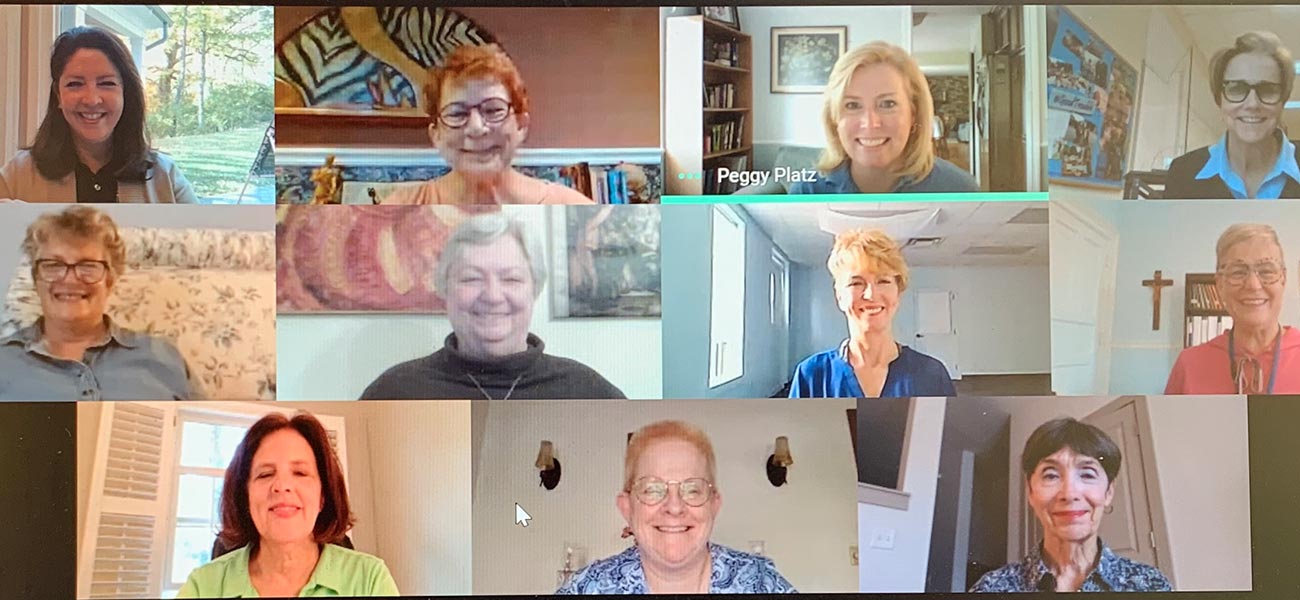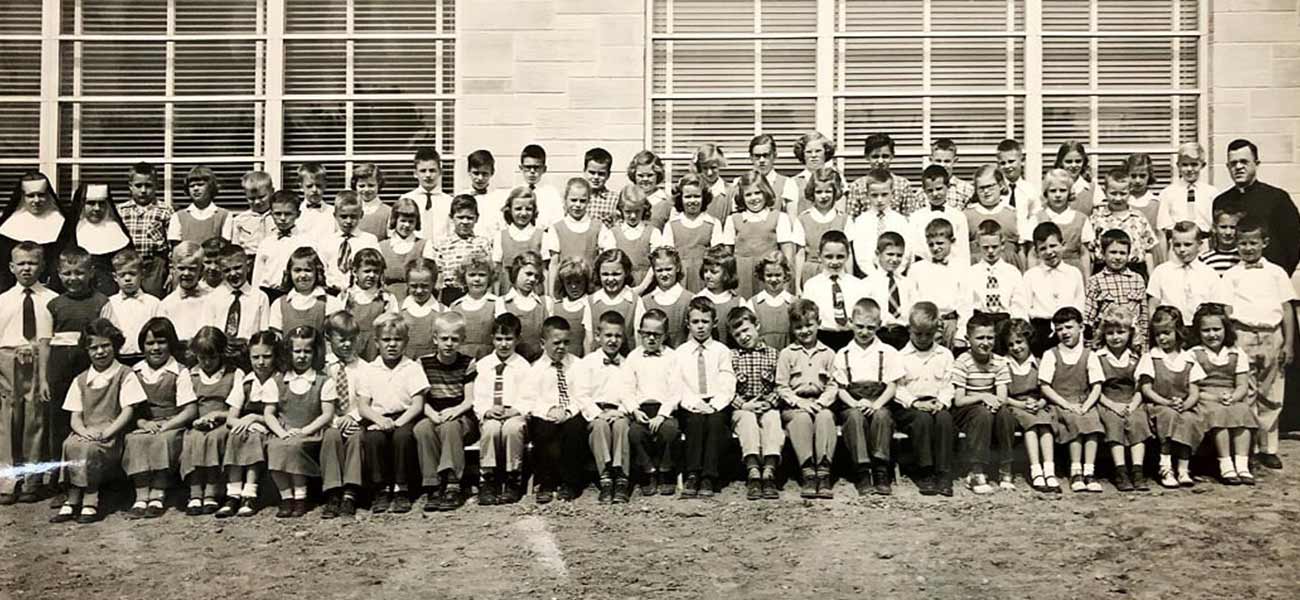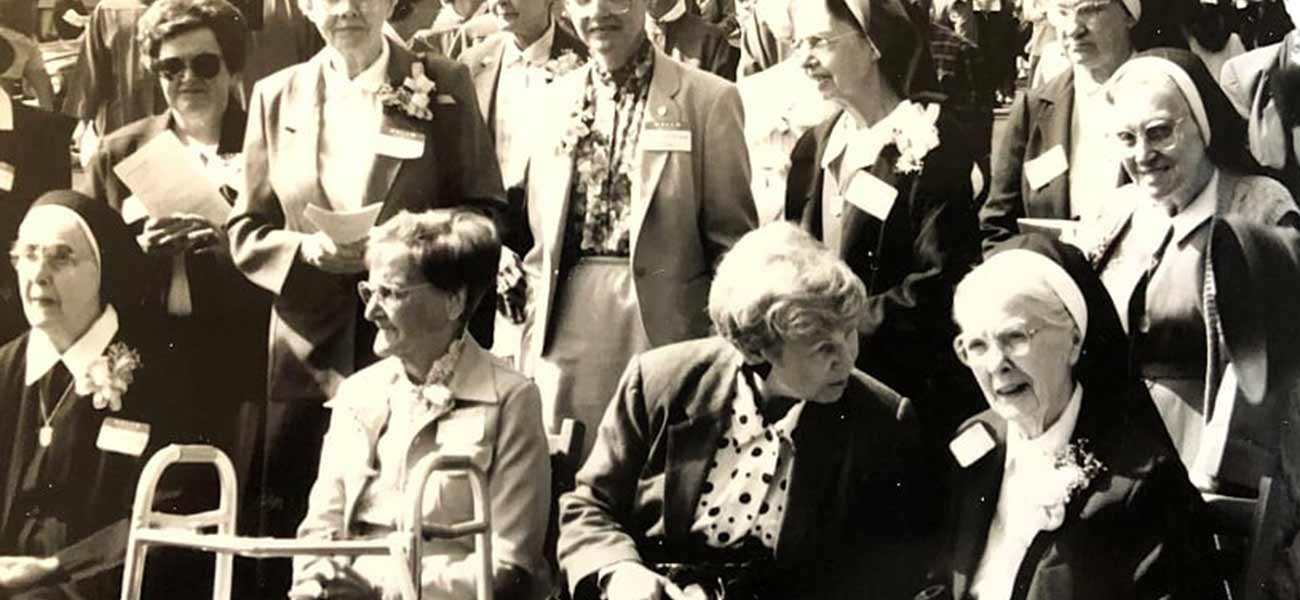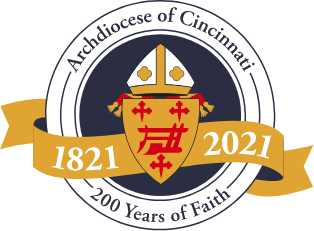
Ursulines of Cincinnati
When the Ursulines of Cincinnati established a foundation in Walnut Hills in 1910, they carried forward the centuries-long mission of Ursuline education. Coming from a history of monastic life and convent schools in France and in Brown County, Ohio, they also felt called into parish schools. Mother Fidelis Coleman, O.S.U., and Mother Baptista Fraener, O.S.U., were the founding leaders.
As Cincinnait’s immigrant population grew, parish schools multiplied. The Ursulines first went to Holy Name and soon to St. Francis de Sales, St. Monica and Nativity of Our Lord (until 1926). As suburban parishes developed after World War II, Ursulines began schools at Our Lady of the Visitation, All Saints and St. Henry in Dayton, which later merged with Our Lady of Good Hope to form Bishop Leibold School. Demographic shifts left some urban schools with declining enrollments. The Ursulines staffed two of these schools, St. Stephen and Resurrection in Price Hill, bridging the latter to a point of viability.
Individual sisters took responsibility for instruction, often called “convert classes” (before RCIA programs opened), welcoming candidates into the Church, especially at St. Louis and St. Monica and in Our Lady of Light, a group fostering a fuller knowledge of the faith for newly Catholic women. Spiritual guidance for women has been a consistent theme.

Between 1932 and 1955, the Ursulines of Cincinnati operated summer religious education programs for rural Ohio parishes without Catholic schools in Georgetown, Arnheim, Morrow and Russells Point.
Inspired by their foundress St. Angela Merici (1474-1535), women’s education was, and continues to be, the focus of St. Ursula Academy. Both boarders (until 1935) and day students included boys through grade eight. Sisters extended their ministry to alumnae and parents of students, offering opportunities for adult spiritual development. The academy expanded to two campuses in 1960. The Ursulines developed these into separate schools — St. Ursula Academy on McMillan Street, a high school for young women, and St. Ursula Villa for the preschool, kindergarten and grade school. They have entrusted both schools to lay-led boards.
Higher education drew the Ursulines into teaching education-related subjects at Xavier University, the Athenaeum of Ohio and several public universities.
The sisters have also contributed to education in the archdiocese in the Catholic Schools Office. Others have served in different roles on the staffs of the Athenaeum and in the Permanent Diaconate program. Ursulines staffed the Archbishop’s Choir School from its beginning in 1954 until it closed in 1965, in collaboration with other religious and lay educators. Some sisters have served in other archdiocesan offices and at The Catholic Telegraph.
Service within the African-American community began at St. Francis de Sales, where the Ursulines were committed to quality education. In the 1970s, they found themselves called beyond the classroom. Besides advocating for Civil Rights, they began a dedicated involvement with their racially mixed neighborhood of Walnut Hills, both with an outreach center and in civic groups. Several have worked in social service and GED programs, (one in the county jail).
Their commitment to Catholic education expanded into various parish ministries, especially at St. Monica, St. Francis de Sales, St. Agnes (later Resurrection) and St. Andrew parishes. The latter three served primarily African-American communities and continued a service of lay empowerment within the Church. Pastoral service has taken different forms, including service to the homebound at St. Philip Apostle and chaplaincy.
Attention to immigrants represents a thread of continuity in the sisters’ service, having begun in 1910 in parish schools. Hospitality was the Ursulines’ response to the plight of immigrants in the 1960s and 1970s. They welcomed 20 sisters of two congregations exiled from Cuba, providing them a home, instruction in English and experience in American educational methods. Six Ursulines eventually accompanied the Cuban sisters to Florida for two years, to help them open three parish schools there for Cuban refugee children.

Cuban families and unaccompanied minors also found a home, educational opportunities and employment with the Ursulines until they were able to gain citizenship and a firm footing in the United States. Later, the sisters also took into their homes children from India and adults from Mexico and China.
Besides activism for justice, the sisters’ service to immigrants includes support for La Amistad, a non-profit providing affordable housing to immigrants from Latin America.
A group of dedicated lay women is picking up the torch. Following a formation process, Ursuline Companions will serve in ministries that respond to the needs of the times. They will keep the light burning with St. Ursula Academy and St. Ursula Villa. They will carry forward the mission launched by St. Angela and carried to Cincinnati in 1910.

